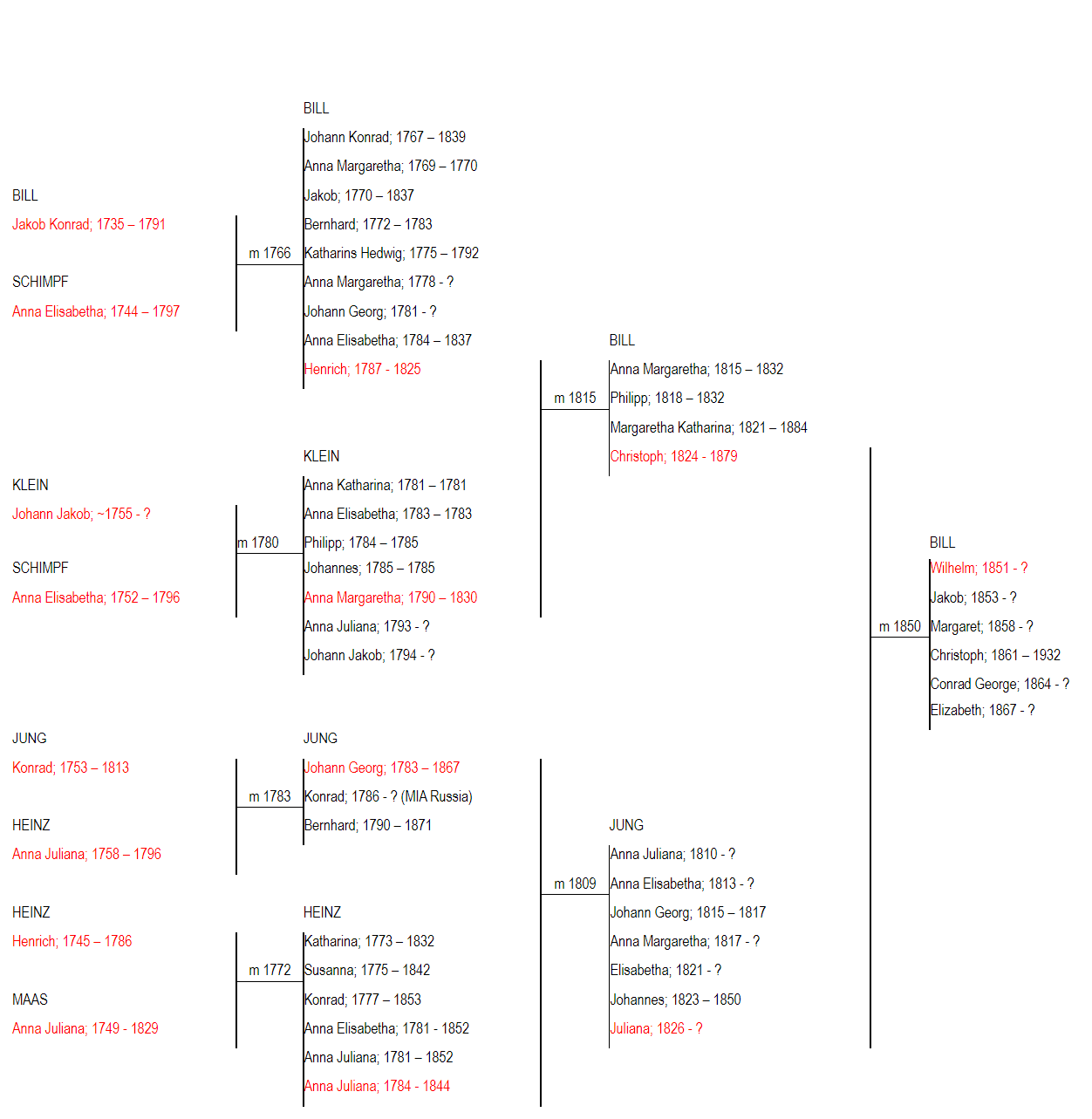Christoph BILL 1824-1879
Born on 12th November 1824, Christoph was the second son of the shoemaker Henrich Bill and Anna Margaretha Klein. He was to be also the last, as his father died only four months after his birth. His mother remarried in 1830 but, only two years after they went to live with their stepfather, Christoph’s older brother and older sister died, leaving only Christoph and one other girl in the family, as no children were born to the second marriage.
Anna Margaretha died several weeks before her son was married. Christoph’s bride was Juliana Jung, a daughter of the butcher Johann Georg Jung; they took their vows on 30th July 1850. A son was born in May 1851, who received the quite uncommon name of Wilhelm from the village shepherd, Johann Wilhelm Belloff. A second son, Jakob, arrived in 1853.
Christoph had turned to weaving linen – for which there was an increasing demand in Butzbach – as a means of supporting his family, but he saw greater opportunities on the Victorian goldfields. He and Juliana, with Wilhelm but not Jakob, left Nieder-Weisel with a very large group of villagers bound for Ballarat. They sailed from Liverpool on 5th November 1856; among their group was Konrad Belloff, a son of Wilhelm’s godfather, but before “Sunshine” got into Australian waters he had died of dysentery.
“Sunshine” reached Melbourne on 29th January 1857 and the group travelled to Ballarat. There was increasing mining activity at Smythesdale at this time that attracted Christoph and some of his friends; from 1858 until 1863 he worked these diggings and then moved across to nearby Happy Valley. Juliana gave birth to four children in this period – Margaret, Christoph, Conrad George and Elizabeth. Wilhelm, now 16 years of age, worked with his father.
Christoph continued to work as a miner throughout his lifetime. When the mines around Happy Valley began to become uneconomic, he relocated to other parts of the state. By the mid-1870s he had moved to the Gisborne district, northwest of Melbourne. His son Wilhelm – known familiarly as Bill in the easy-going atmosphere of the mining communities – was now in his thirties, but had not married. The first-born son, Jakob, seems not to have followed his parents to Australia.
Christoph’s life ended at the fairly young age of 54 on 24th March 1879 at his home in Ballengarook, and he was buried two days later. He had never taken out letters of naturalisation, though he clearly intended to remain in Australia. Juliana and Bill were named as the executors of his will, in which provision was made for all of his children, other than Jakob in Nieder-Weisel (who, presumably, was either dead or in some other country).
Christoph’s only near relative in Nieder-Weisel, his older sister Maria Katharina, had died in 1874 at the same age that he died.
View Christoph's Family Chart

